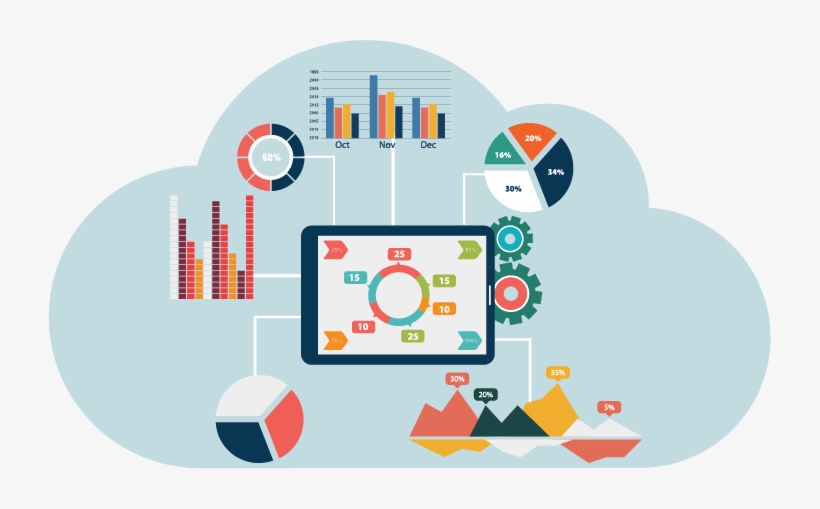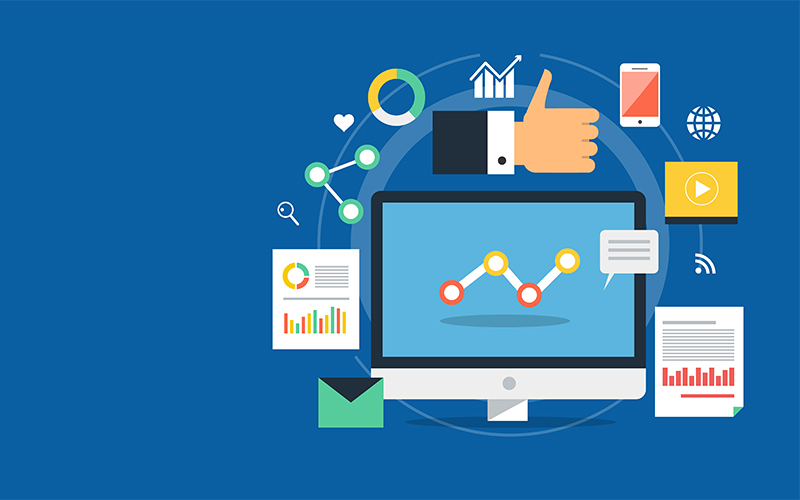In the vast landscape of digital interactions, the role of social analytics companies has become increasingly crucial. As we navigate the ever-evolving digital age, businesses seek not only to establish an online presence but also to understand, analyze, and leverage the vast amounts of data generated through social media channels.
Social Analytics Companies: The Ultimate Guide

A. Definition of Social Analytics
Social analytics involves the collection, analysis, and interpretation of data from social media platforms to inform and guide business strategies. It goes beyond mere metrics, delving into the nuances of consumer behavior, sentiments, and trends.
B. Importance in the Digital Age
In an era where digital interactions shape consumer perceptions, social analytics provides businesses with invaluable insights. From understanding customer preferences to tracking competitors, the data derived from social analytics serves as a compass for strategic decision-making.
The Top Players in Social Analytics
A. AIM Technologies: Pioneering Innovation
Leading the pack in innovation, AIM Technologies has consistently pushed the boundaries of social analytics. Their cutting-edge tools and algorithms set the benchmark for the industry, providing clients with unparalleled insights.
B. Brandwatch: Trailblazing Trends
Brandwatch focuses on identifying and capitalizing on emerging trends. Their agility in adapting to the dynamic social landscape has made them a trusted partner for businesses aiming to stay ahead in the digital race.
C. Brand24: Revolutionizing Metrics
Revolutionizing the way metrics are perceived, Brand24 has developed a comprehensive suite of analytics tools. From engagement metrics to in-depth sentiment analysis, they offer a holistic approach to social data interpretation.
Key Features and Capabilities
A. Real-Time Monitoring
One of the fundamental features of social analytics is real-time monitoring. This allows businesses to stay abreast of conversations, trends, and potential crises as they unfold, enabling swift and informed responses.
B. Sentiment Analysis
Understanding the sentiment behind online interactions is crucial. Social analytics companies employ sophisticated algorithms to gauge whether conversations are positive, negative, or neutral, providing valuable context to data.
C. Competitor Benchmarking
To stay competitive, businesses need to know how they fare against rivals. Social analytics facilitates benchmarking against competitors, offering insights into strengths, weaknesses, and areas for improvement.
How Social Analytics Drive Business Strategy
A. Enhancing Customer Engagement
Social analytics allows businesses to understand their audience on a deeper level. By analyzing consumer behavior and preferences, companies can tailor their content and engagement strategies to foster meaningful connections.
B. Improving Marketing Campaigns
Gone are the days of guesswork in marketing. Social analytics empowers marketers to refine their campaigns based on real data, ensuring that promotional efforts resonate with the target audience.
C. Influencing Product Development
By tapping into social conversations, businesses gain a direct line to customer feedback. This feedback loop is invaluable for shaping product development strategies, and ensuring that offerings align with consumer expectations.
Challenges and Solutions
A. Data Security Concerns
As businesses embrace social analytics, concerns regarding data security arise. Robust encryption, secure storage practices, and compliance with data protection regulations are paramount in addressing these concerns.
B. Overcoming Analytical Complexity
The wealth of data available can be overwhelming. Social analytics companies must provide user-friendly interfaces and intuitive dashboards to enable clients to navigate and derive actionable insights from complex data sets.
C. Ensuring Data Accuracy
The accuracy of social analytics hinges on data quality. Companies in this space must continually refine their algorithms, eliminating biases and inaccuracies to provide clients with reliable insights.
Future Trends
A. Artificial Intelligence Integration
The integration of artificial intelligence (AI) is set to revolutionize social analytics. AI algorithms can analyze vast datasets, identify patterns, and make predictions, providing businesses with more proactive and predictive insights.
B. Cross-Platform Analysis
As consumers diversify their online presence, social analytics companies must evolve to offer cross-platform analysis. The ability to gather and analyze data from multiple platforms ensures a comprehensive understanding of the digital landscape.
C. Predictive Analytics
The future of social analytics lies in predictive capabilities. By leveraging historical data and trends, social analytics companies can help businesses anticipate future developments, enabling proactive rather than reactive strategies.
How to Choose the Right Social Analytics Company
A. Understanding Your Business Needs
Before selecting a social analytics partner, businesses must define their objectives. Understanding specific goals and areas of focus ensures alignment with a company that meets unique requirements.
B. Evaluating Features and Customization
Not all social analytics tools are created equal. Businesses should assess the features offered by different companies and prioritize customization options that align with their analytical needs.
C. Considering Customer Support
Responsive and knowledgeable customer support is vital in the world of social analytics. A company’s ability to assist clients in navigating challenges and maximizing the use of their tools is a key factor in decision-making.
The Cost of Social Analytics: Is It Worth It?
A. Investment vs. Returns
While social analytics is an investment, the returns can be substantial. Businesses should weigh the upfront costs against the potential benefits in terms of enhanced strategies, improved customer relations, and increased profitability.
B. Scaling Analytics for Small Businesses
Smaller enterprises often question the feasibility of social analytics. Companies offering scalable solutions cater to the needs of businesses of all sizes, ensuring that even startups can harness the power of social data.
C. Budget-Friendly Options
Not every business has a large budget for analytics. Fortunately, the market offers budget-friendly options without compromising on essential features, making social analytics accessible to a wide range of businesses.
Tips for Maximizing the Benefits of Social Analytics
A. Regularly Review and Adapt Strategies
Social media is dynamic, and so should your strategies. Regularly reviewing social analytics data allows businesses to adapt quickly to changing trends and consumer preferences.
B. Employee Training and Adoption
The effectiveness of social analytics hinges on the competence of those using the tools. Investing in employee training ensures that the team can fully leverage the capabilities of social analytics platforms.
C. Stay Updated on Industry Trends
The landscape of social media and analytics is ever-evolving. Businesses must stay informed about industry trends to remain competitive and take advantage of emerging opportunities.
Conclusion
In conclusion, social analytics companies play a pivotal role in empowering businesses with data-driven decision-making. From understanding consumer behavior to predicting future trends, the insights derived from social analytics shape the success of enterprises in the digital age.
The journey doesn’t end with adoption; it evolves. As technology advances and consumer behavior changes, businesses must view social analytics as a continuous journey of digital transformation, adapting strategies to stay relevant and competitive.
For a hands-on experience, request a demo from AIM Technologies and unleash the full potential of social analytics for your business transformation.



